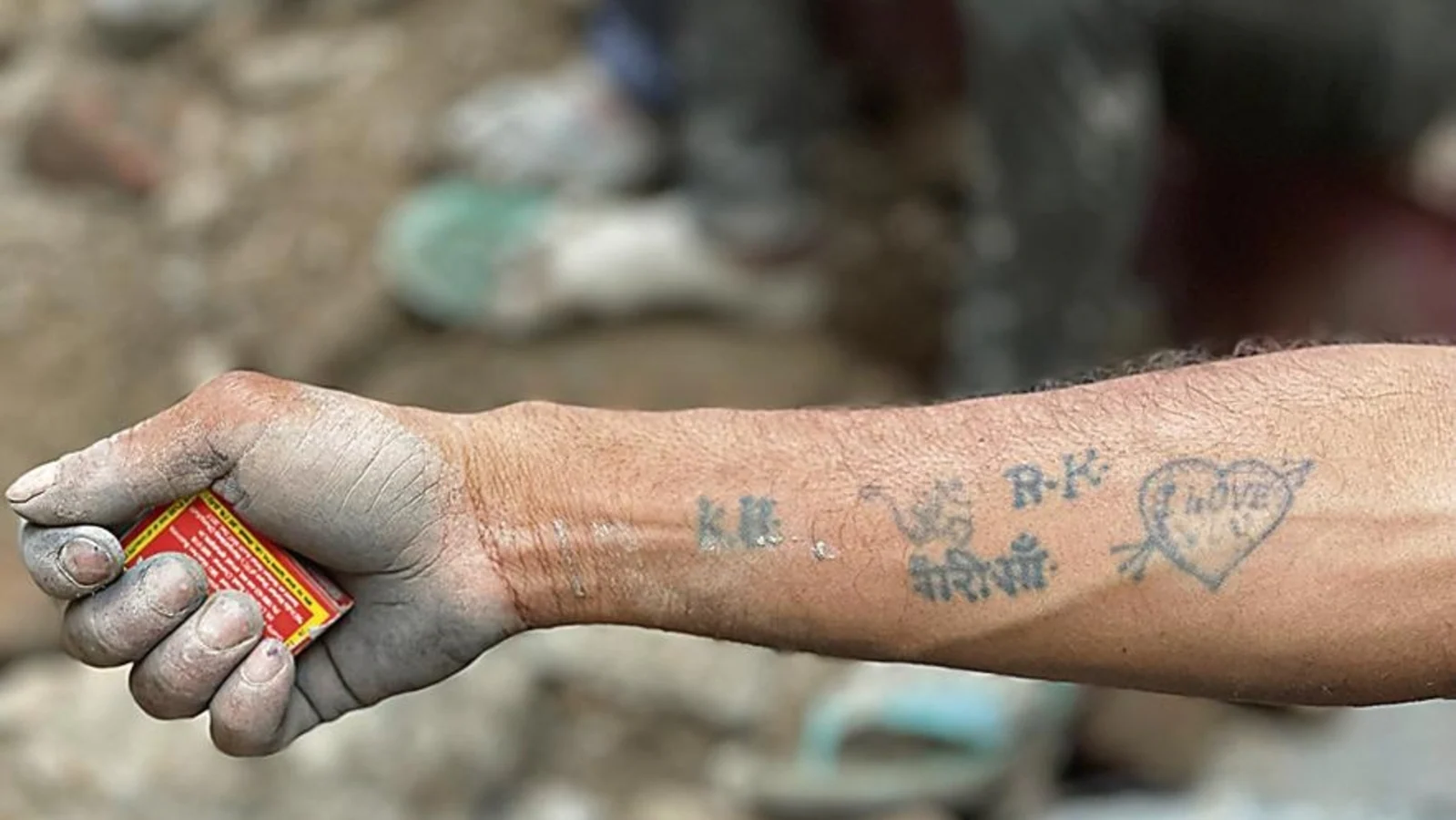[ad_1]
The heart is pierced by the proverbial Cupid’s arrow. And within the heart is inscribed ‘I Love You’.
This is a tattoo on Khajani’s right arm — his working arm, he points out, for “the labourer’s right arm is his greatest tool.”
On a sultry afternoon, Khajani is in an Old Delhi bylane, laying out a sewage pipe with two colleagues. He is sitting on a mound of upturned earth he helped dig from the street. Long ago, his parents had already tattooed his right arm with the sacred ‘Om’, he says.
There’s another tattoo which says ‘R.K.’. It happens to be the initials of a special person, Khajani says, smiling. “R.K. is a short form for Rajkumari.“
Rajkumari is the name of his wife, he explains. A native of Gurugram district in Haryana, his wife lives in the village with his parents and children.
Laying out the history of this romantic tattoo, the middle-aged father of three recalls his past.
“At that time I hadn’t moved out of the village and worked on the family’s very small agricultural land,” he says. Fifteen days after his wedding to Rajkumari, Khajani found a job at a mithai (sweets) shop in Ghaziabad “that paid me a monthly salary, more than I could hope to raise from my khet (farm) every season.”
It was in Ghaziabad that he got both the tattoos next to each other on his arm — ‘R.K.’ and ‘I Love You’. “The tattoos were done in 10 minutes… It didn’t hurt at all. It felt like a cheeti (ant) biting my arm.”
Khajani bends his head downward, gives a knowing smile, and adds, “Before my marriage, I loved a woman… Her name was Rajkumari too.”
He got the initials tattooed as a testament to the memory of that R.K. “I never met her again after my marriage.”
Khajani confirms that Rajkumari, his wife, knows of her namesake. “She is aware that this tattoo was for the other Rajkumari, but she never objected.”
He asserts that today he has only one woman in his life — his wife Rajkumari. “In fact, after Holi, I’m moving back to Gurugram. Not to the village, but in the city. I have found work at a mithai shop where I will make petha.” Khajani now stretches out his arm to be clicked.
[ad_2]
Source link


6 thoughts on “Delhiwale: Colours of labour and love”